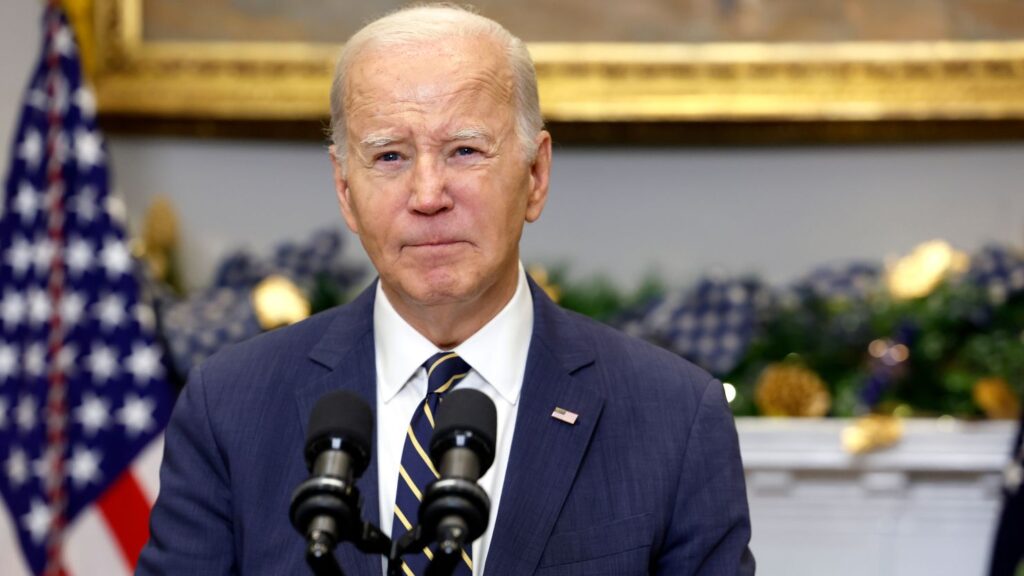In a significant move, President Joe Biden has commuted the sentences of 37 out of 40 federal death row inmates, converting their punishments to life imprisonment without the possibility of parole. This decision comes just weeks before President-elect Donald Trump, a staunch advocate of capital punishment, is set to take office.
The Context and Decision
President Biden’s decision aligns with his long-standing opposition to the death penalty. Since taking office, Biden has imposed a moratorium on federal executions, halting the practice that was resumed during Trump’s first term. The commutations reflect Biden’s commitment to criminal justice reform and his belief in the need to end the use of the death penalty at the federal level.
Who Remains on Death Row?

Despite the commutations, three high-profile inmates remain on federal death row:
Dzhokhar Tsarnaev: The 2013 Boston Marathon bomber.
Dylann Roof: The white supremacist who killed nine Black churchgoers in Charleston, South Carolina, in 2015.
Robert Bowers: The perpetrator of the 2018 mass shooting at the Tree of Life synagogue in Pittsburgh, which resulted in the deaths of 11 Jewish worshippers.
These individuals were excluded from the commutations due to the nature of their crimes, which involved terrorism and hate-motivated mass murder.
The Impact of the Decision
Biden’s commutations have sparked a range of reactions. Advocates for criminal justice reform have praised the move as a step towards a more humane and just system. They argue that the death penalty is an outdated and inhumane practice that disproportionately affects marginalized communities.
On the other hand, critics, including President-elect Trump, have expressed concerns about the implications of this decision. Trump has been vocal about his support for expanding the use of capital punishment, particularly for drug traffickers and those who commit heinous crimes.
A Historical Perspective
The death penalty has been a contentious issue in the United States for decades. While 23 states have abolished it, six others have moratoriums in place. The federal government had not carried out any executions from 2003 until Trump resumed them in 2020, overseeing 13 executions during his final six months in office.
Biden’s decision to commute the sentences of 37 inmates is a historic move that underscores his administration’s commitment to ending federal executions. It also highlights the ongoing debate over the morality and effectiveness of the death penalty in the American justice system.
Looking Ahead
As the Biden administration continues to push for criminal justice reform, the future of the death penalty in the United States remains uncertain. The commutations mark a significant shift in federal policy, but the broader battle over capital punishment is far from over.

